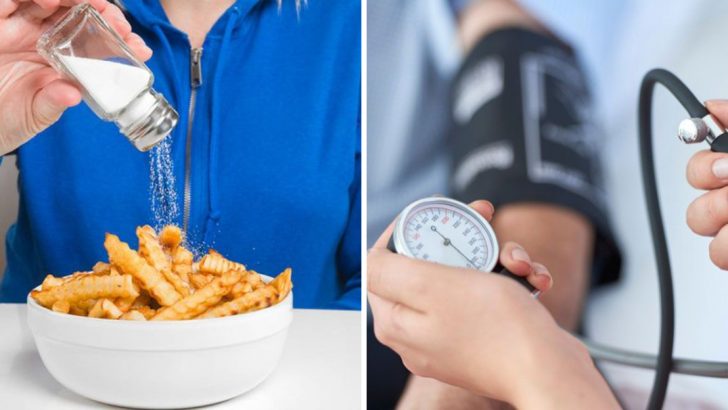Your body needs salt to function, but too much can wreak havoc on your health. The average American consumes nearly double the recommended daily limit of sodium, often without realizing it. Hidden salt lurks in processed foods, restaurant meals, and even seemingly healthy options.
Recognizing the warning signs of excessive salt intake is your first step toward better health and preventing serious conditions like high blood pressure and heart disease.
1. Persistent Thirst That Won’t Quit

Waking up parched at 3 AM again? Your salt-laden diet is forcing your body into overdrive. When sodium levels spike, your cells desperately signal for more water to dilute the salty invasion.
That unquenchable thirst isn’t random; it’s your internal warning system blaring at full volume. Cut back by replacing processed snacks with fresh fruits. And read food labels like they’re suspense novels, watching for sodium’s sneaky appearances in unexpected places.
2. Puffy Face And Swollen Fingers
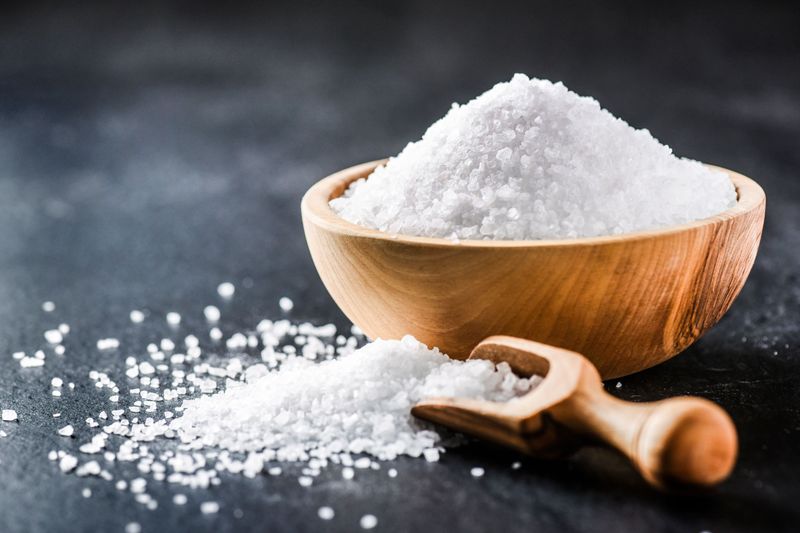
Morning mirror check revealing a face that looks like you’ve stored nuts for winter? Salt might be the culprit behind that unwelcome puffiness. Excess sodium forces your body to retain water, creating a bloated appearance particularly noticeable in your face, fingers, and ankles.
Those rings suddenly feeling tight aren’t shrinking – your fingers are expanding! Combat the puff by slashing processed food intake and embracing potassium-rich foods like bananas and spinach that help flush excess sodium.
3. Frequent Headaches Strike Without Warning

Hammers pounding inside your skull for no apparent reason? Before popping another pain pill, consider your salt intake. High sodium levels can trigger blood vessel swelling in your brain, unleashing those merciless headaches that ambush your day.
The connection works like this: excessive salt throws off your fluid balance, causing cells to swell – including those in your brain. Your poor cranium has limited space, so pressure builds faster than a shaken soda can. Replace table salt with herbs and spices. Hydrate consistently throughout the day rather than chugging water all at once.
4. Blood Pressure Numbers Climbing Skyward
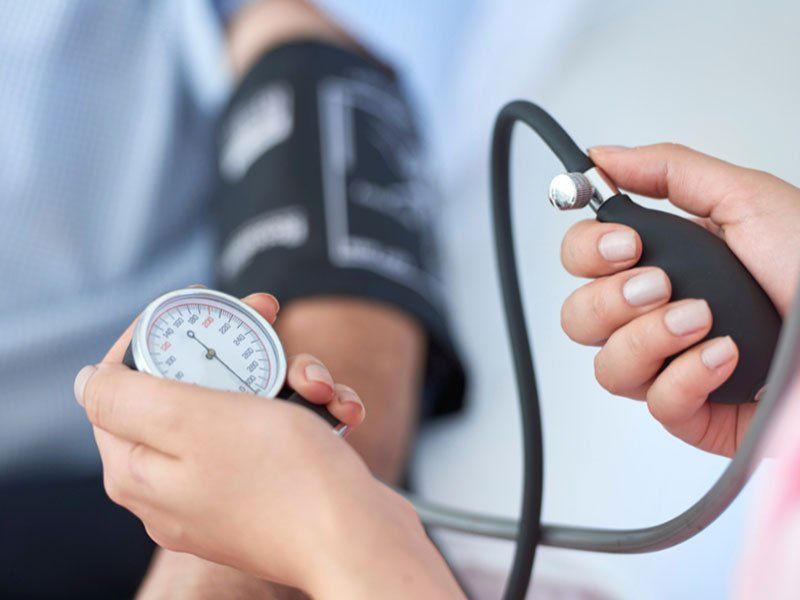
Your doctor’s worried face says it all – those blood pressure numbers are creeping into the danger zone. Salt forces your body to hold extra water, increasing blood volume and making your heart work harder than a hamster on a wheel.
The constant pressure damages artery walls over time, setting the stage for heart attacks and strokes. Even scarier? You might feel perfectly fine while this damage silently accumulates. Replace salt with lemon juice, vinegar, or salt-free seasoning blends for flavor without the cardiovascular consequences.
5. Brain Fog That Clouds Your Thinking
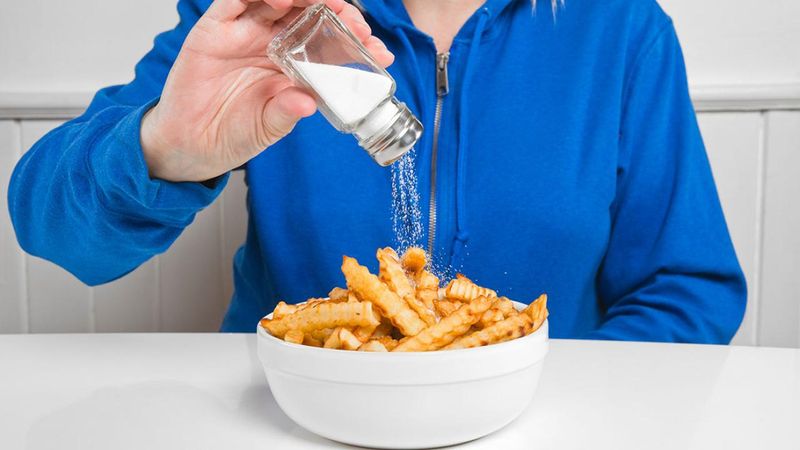
Keys in the refrigerator again? That mental cloudiness might be salt-induced brain fog. High sodium levels disrupt the delicate electrical signals zipping between your neurons, turning your once-sharp mind into a confused jumble.
Scientists have found connections between high-sodium diets and impaired cognitive function. Your brain essentially gets waterlogged when sodium throws off your fluid balance, making concentration harder than threading a needle while wearing oven mitts. Fill your plate with brain-boosting foods like fatty fish, blueberries, and walnuts.
6. Intense Cravings For Salty Foods

Demolishing an entire bag of pretzels without coming up for air? Your taste buds have been hijacked by salt addiction. The more salt you eat, the more your taste buds adapt, requiring increasingly higher amounts to trigger that same satisfying sensation.
This vicious cycle works exactly like other addictions. Your brain’s reward system gets rewired, demanding more salt to hit the pleasure center. Breaking free requires a complete taste bud reset. Gradually decrease salt intake over several weeks rather than quitting overnight.
7. Frequent Urination Interrupting Your Day

Bathroom breaks becoming your most frequent activity? When sodium levels skyrocket, your kidneys scramble to flush out the excess, sending you running to the restroom more often than a coffee addict. This isn’t your bladder being dramatic.
It’s your body’s sophisticated filtration system working overtime to maintain homeostasis. The problem compounds when you drink more to quench that salt-induced thirst. Help your kidneys by cutting processed foods – they contribute nearly 70% of dietary sodium for most Americans.
8. Bone Weakness You Can’t See Coming
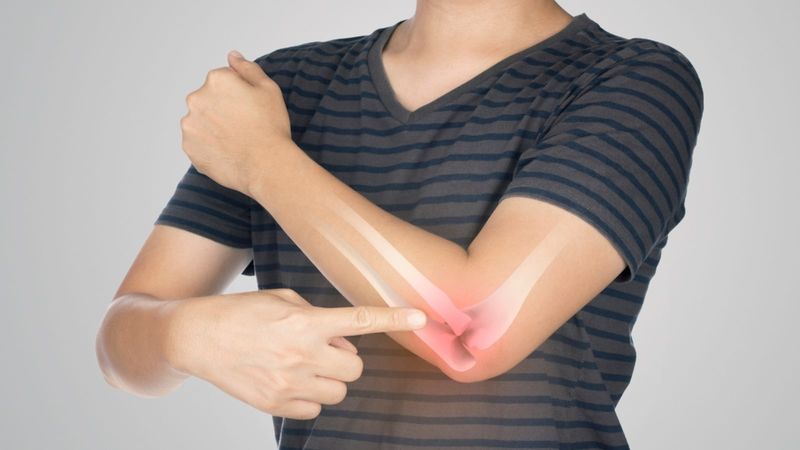
Your skeleton is silently suffering from your salt habit. High sodium levels force calcium out of your body through urine, literally flushing your bone strength down the toilet with each bathroom trip. This calcium exodus happens regardless of how much calcium-rich food you consume.
Even worse, this damage accumulates invisibly until a minor fall results in a surprising fracture. Women after menopause face particularly high risks. Protect your framework by balancing sodium with potassium-rich foods like sweet potatoes and yogurt.
9. Stomach Discomfort That Ruins Meals
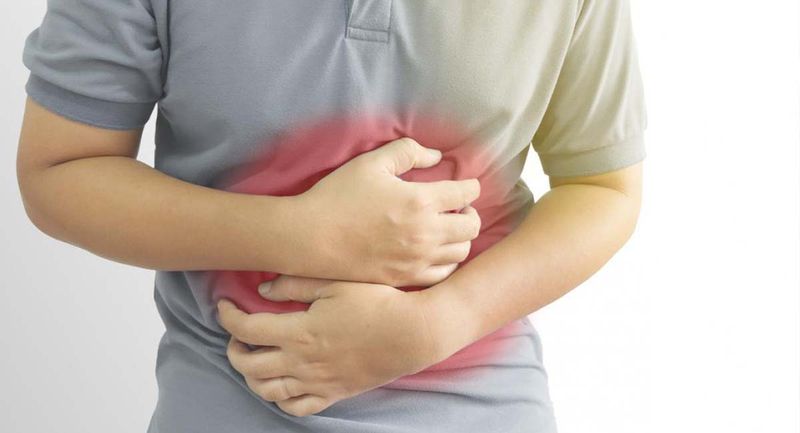
Stomach burning like you swallowed a lit match? Excessive salt irritates your digestive tract’s delicate lining, potentially worsening conditions like ulcers, acid reflux, and stomach inflammation. That innocent-looking salt shaker is secretly your gut’s worst enemy.
Salt increases stomach acid production while simultaneously weakening your digestive tract’s protective mucous layer. This double-whammy creates the perfect storm for digestive distress that can turn mealtime into misery. Soothe your system by identifying your personal trigger foods through an elimination diet.
10. Unexplained Weight Gain Despite Efforts
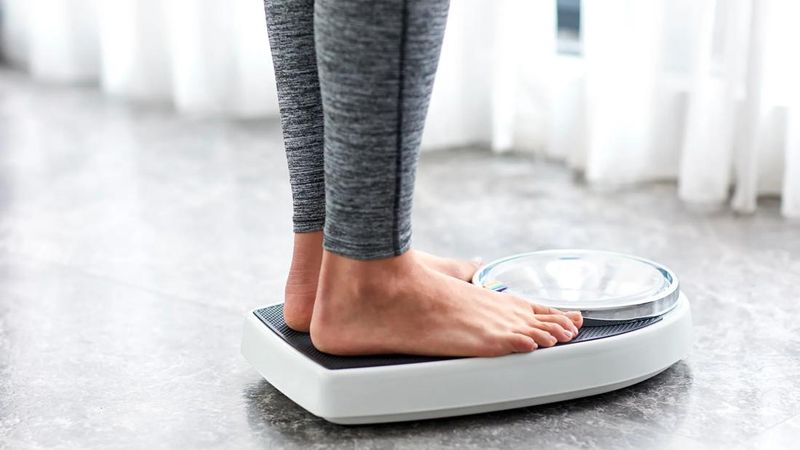
Scale showing numbers that make no sense given your efforts? Before blaming your metabolism, examine your sodium intake. Those extra pounds might actually be water weight from salt-induced fluid retention – up to 5 pounds of it!
Your body hoards water when sodium levels rise, creating weight fluctuations that have nothing to do with fat gain. The frustrating part? This water weight distributes throughout your body, making clothes tight and motivation plummet. Stabilize your weight by cooking at home where you control the salt.
11. Kidney Stones Causing Excruciating Pain

Pain that makes childbirth look like a walk in the park? Kidney stones often result from high-sodium diets. Salt increases calcium excretion through urine, creating the perfect environment for those agonizing crystals to form and grow.
The connection is clear: studies show people who consume more sodium have significantly higher rates of kidney stone formation. Limit animal protein which compounds the problem. Add lemon to water – citrate helps prevent crystal formation.

